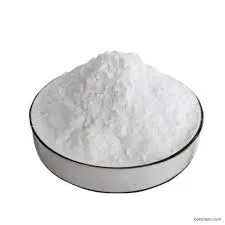- Afrikaans
- Albanian
- Amharic
- Arabic
- Armenian
- Azerbaijani
- Basque
- Belarusian
- Bengali
- Bosnian
- Bulgarian
- Catalan
- Cebuano
- Corsican
- Croatian
- Czech
- Danish
- Dutch
- English
- Esperanto
- Estonian
- Finnish
- French
- Frisian
- Galician
- Georgian
- German
- Greek
- Gujarati
- Haitian Creole
- hausa
- hawaiian
- Hebrew
- Hindi
- Miao
- Hungarian
- Icelandic
- igbo
- Indonesian
- irish
- Italian
- Japanese
- Javanese
- Kannada
- kazakh
- Khmer
- Rwandese
- Korean
- Kurdish
- Kyrgyz
- Lao
- Latin
- Latvian
- Lithuanian
- Luxembourgish
- Macedonian
- Malgashi
- Malay
- Malayalam
- Maltese
- Maori
- Marathi
- Mongolian
- Myanmar
- Nepali
- Norwegian
- Norwegian
- Occitan
- Pashto
- Persian
- Polish
- Portuguese
- Punjabi
- Romanian
- Russian
- Samoan
- Scottish Gaelic
- Serbian
- Sesotho
- Shona
- Sindhi
- Sinhala
- Slovak
- Slovenian
- Somali
- Spanish
- Sundanese
- Swahili
- Swedish
- Tagalog
- Tajik
- Tamil
- Tatar
- Telugu
- Thai
- Turkish
- Turkmen
- Ukrainian
- Urdu
- Uighur
- Uzbek
- Vietnamese
- Welsh
- Bantu
- Yiddish
- Yoruba
- Zulu
10 月 . 19, 2024 02:48 Back to list
tylosin injectable
Tylosin Injectable An Overview and Applications
Tylosin is an antibiotic that belongs to the macrolide class of antibiotics, which are derived from the fermentation of the bacterium *Streptomyces fradiae*. Commonly used in veterinary medicine, tylosin injectable formulations are employed for the treatment of a variety of bacterial infections in livestock and companion animals. This article provides an overview of tylosin injectable, its uses, mode of action, dosage, and potential side effects.
Uses of Tylosin Injectable
Tylosin injectable is primarily used to manage infections caused by specific bacteria in animals, including those affecting the respiratory system, skin, and soft tissues. It's often indicated for conditions such as pneumonia, mastitis, and various forms of enteritis. In addition to treating infections, tylosin is also used as a growth promoter in some livestock, aiding in weight gain and improving feed efficiency. However, its use as a growth promoter has come under scrutiny due to concerns about antibiotic resistance, leading to regulatory changes in various countries.
Mode of Action
Tylosin works by inhibiting bacterial protein synthesis. It specifically binds to the 50S subunit of the bacterial ribosome, disrupting the translation process and preventing the production of important proteins that bacteria need to grow and multiply. This bacteriostatic action helps control infections by limiting bacterial proliferation, allowing the animal’s immune system to eradicate the infection more effectively.
Administration and Dosage
tylosin injectable

Tylosin injectable is typically administered through intramuscular or subcutaneous injection. The dosage depends on the type of animal, the severity of the infection, and the specific formulation of the medication. Commonly, the dosage for cattle can range from 5 to 10 mg/kg of body weight, while for swine, it may be a bit lower. It is crucial for veterinarians to monitor the dosage carefully, as administering excessive amounts can lead to adverse effects.
Side Effects
While tylosin is generally considered safe when used as directed, it may cause side effects in some animals. Potential reactions include gastrointestinal upset, such as diarrhea or vomiting, especially if the treatment is prolonged. Rarely, allergic reactions may occur, leading to symptoms like swelling, itching, or difficulty breathing. It is essential for veterinarians and pet owners to be aware of these potential side effects and to seek veterinary assistance if any abnormal reactions are observed after administration.
Precautions and Considerations
Before using tylosin injectable, veterinarians should conduct a thorough assessment of the animal’s health status and history of drug sensitivity. Tylosin should not be used in animals with known hypersensitivity to the drug or in animals that are pregnant or lactating unless directed by a veterinarian. It is also essential to adhere to withdrawal times for livestock intended for human consumption, as residual antibiotics in the meat can pose health risks and lead to violations of food safety regulations.
Conclusion
Tylosin injectable serves as an essential tool in veterinary medicine for managing bacterial infections and promoting growth in livestock. Its effectiveness and relative safety make it a commonly recommended antibiotic by veterinarians. However, the rise of antibiotic resistance calls for careful and responsible use. Veterinary professionals should remain informed about the latest guidelines and regulations surrounding the use of antibiotics to ensure that they are used judiciously and ethically in animal health practices. In doing so, we can help maintain the efficacy of tylosin and other antibiotics for future generations of livestock and companion animals.
-
The Power of Radix Isatidis Extract for Your Health and Wellness
NewsOct.29,2024
-
Neomycin Sulfate Soluble Powder: A Versatile Solution for Pet Health
NewsOct.29,2024
-
Lincomycin Hydrochloride Soluble Powder – The Essential Solution
NewsOct.29,2024
-
Garamycin Gentamicin Sulfate for Effective Infection Control
NewsOct.29,2024
-
Doxycycline Hyclate Soluble Powder: Your Antibiotic Needs
NewsOct.29,2024
-
Tilmicosin Premix: The Ultimate Solution for Poultry Health
NewsOct.29,2024













